Talent shows urged to follow new restrictive tunes
Updated: 2013-07-26 00:44
By Han Bingbin (China Daily)
|
||||||||
The future of China's musical talent shows is up in the air as new restrictive regulations are being rolled out by the country's authorities.
A spokesman for the State General Administration of Press, Publication, Radio, Film and Television said on Wednesday that satellite channels are not allowed to produce singing talent shows during a given period of time that the administration did not specify.
Shows currently on air will have to adjust their broadcast schedules, and upcoming shows will be put on hold, he said.
The move is to "avoid repetition of similar programs and offer audiences more choices" as the country's TV screens are packed with "a noticeably growing number of singing talent shows", he said.
China's leading satellite channels, such as Hunan TV and Zhejiang TV, have quickly responded that they haven't received specific orders from superior departments, meaning that the broadcast times of current hit shows like Hunan's Super Boy and Zhejiang's The Voice of China will remain unchanged.
"Even if we receive the orders, changing the broadcast time of a program is not as big a deal as people think. It's part of our regular operations. Sometimes we do it to meet the superior department's requests, sometimes simply due to the content of the program itself," said Xu Jifeng, an official with Zhejiang TV.
The authority's moves to cut back on entertainment shows date back to 2011.
The then-State Administration of Radio, Film and Television limited the country's 34 satellite channels to 90 minutes of entertainment broadcasting twice a week during prime time to curb "excessive entertainment and low taste" on TV.
That didn't seem to put a cap on the outburst of entertainment shows, especially after the demand was continually fueled by the new idea of buying formats from overseas.
From 2009 to 2012, Chinese television saw more than 30 authorized reproductions of foreign reality shows.
The BBC, London-based Fremantle Media, and the Dutch production companies Talpa and Endemol have so far been the main suppliers of these program formats.
Half of the shows are aired on Hunan TV, Jiangsu TV, Zhejiang TV and Shanghai's Dragon TV — arguably China's four most-watched satellite channels.
The only difference with Chinese television in 2013 is the unprecedented number of singing talent shows, largely inspired by the phenomenal success of The Voice of China in 2012.
The more than 12 ongoing singing shows share much in common: larger-than-ever investments, A-list celebrities as judges, imported formats, and contestants with heart-rendering family tragedies repeatedly found by angry audiences to be false or exaggerated.
"Imitation has been a long-term phenomenon in China's TV industry, TV serials and entertainment shows alike. It won't change as long as audience ratings remain the only evaluation criterion. If a format proves successful, people will copy it," said Leng Song, media researcher with the Chinese Academy of Social Sciences.
"But you see how poor we are in originality and creativity. Besides, such shows have caused many celebrities to crazily raise their appearance fees for the shows. What entertainment shows have now is a distorted image."
Even so, the right to eliminate a program should be left to the market, and shows of dubious quality will naturally fade out, said Lu Fei, publicity director with Canxing Productions, producer of The Voice of China.
"I believe good shows can still last. As long as we say ‘no' to sensationalism and focus on the music itself, I think both the authorities and the audiences will like it."
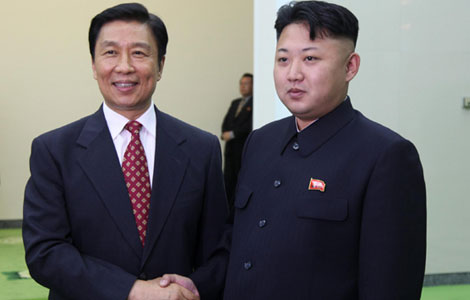
 Top DPRK leader meets Chinese vice-president
Top DPRK leader meets Chinese vice-president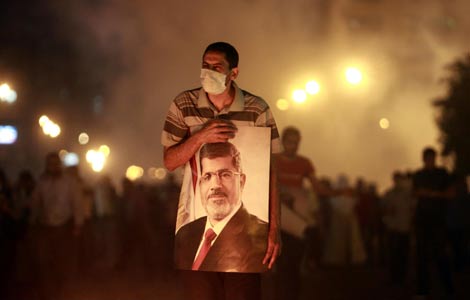
 US does not plan decision on Egypt coup
US does not plan decision on Egypt coup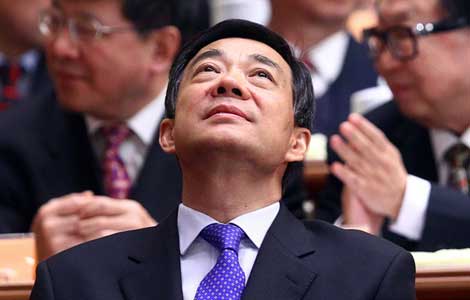
 Bo Xilai indicted for corruption
Bo Xilai indicted for corruption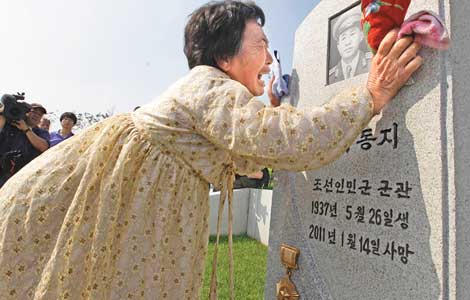
 Korean War veterans return to peninsula
Korean War veterans return to peninsula
 Tourist safety a priority in S China Sea
Tourist safety a priority in S China Sea
 Death toll in Spain train crash rises to 77
Death toll in Spain train crash rises to 77
 Royal baby named George Alexander Louis
Royal baby named George Alexander Louis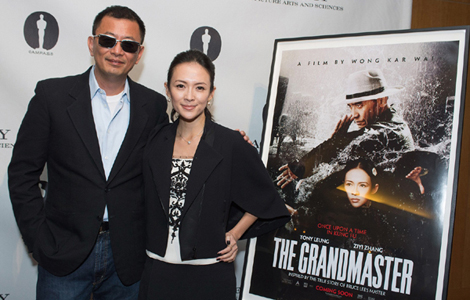
 'The Grandmaster' takes center stage
'The Grandmaster' takes center stage
Most Viewed
Editor's Picks

|

|

|

|

|

|
Today's Top News
Flights over sea 'routine training'
US does not plan decision on Egypt coup
Congress approves NSA spying program
Japanese PM unlikely to visit Yasukuni Shrine
Girl, 2, thrown to ground; suspect detained
Crackdown a bitter drug to herald changes
Indictment shows CPC's stance
China's VAT reform to benefit more businesses
US Weekly

|

|







